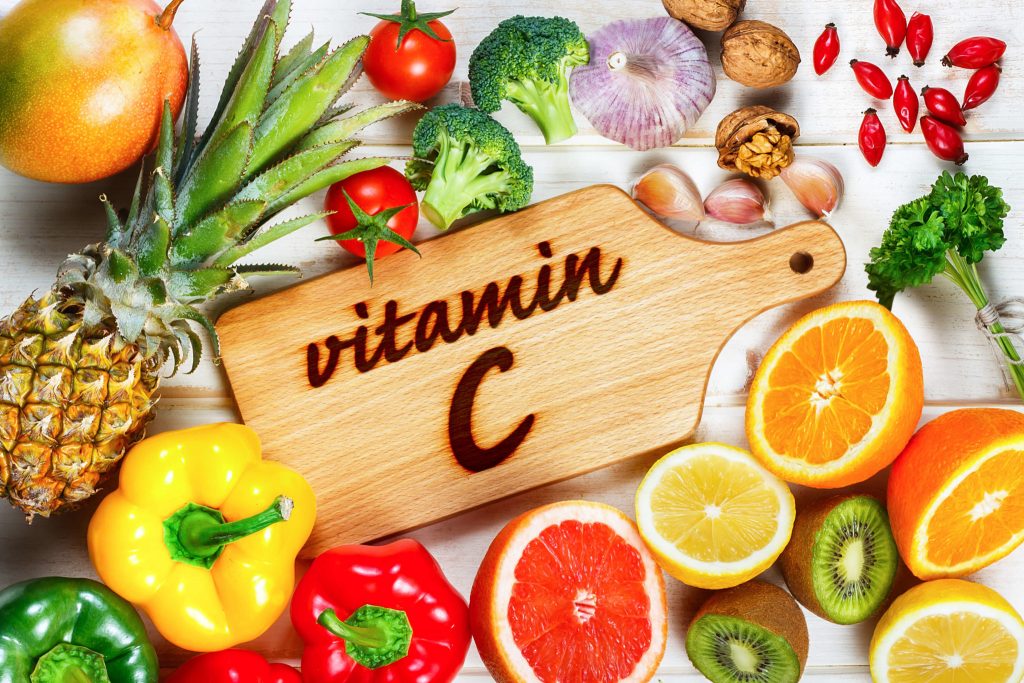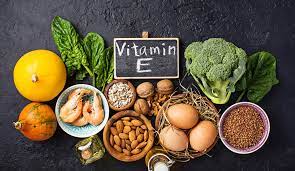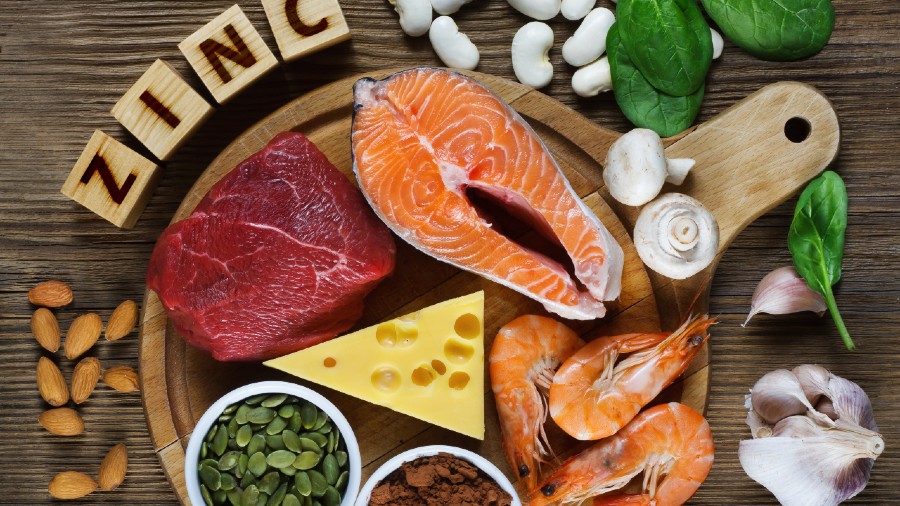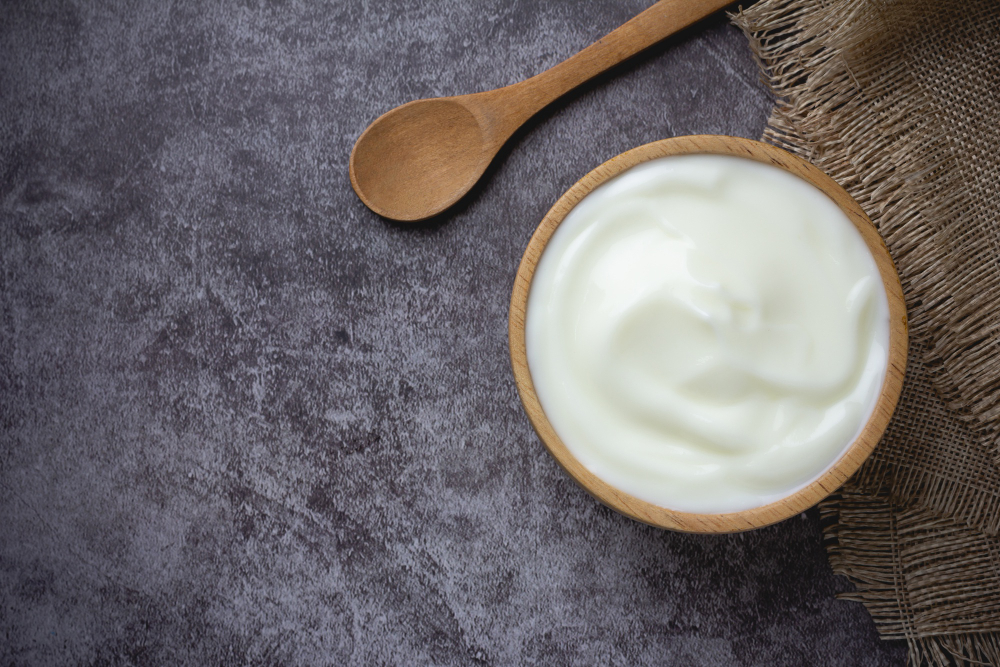
What are the Symptoms of NAD+ Deficiency?
NAD+ (Nicotinamide Adenine Dinucleotide) is one of the most critical molecules in the body, playing a role in numerous biological processes essential for health.
NAD+ is known as a necessary coenzyme in crucial metabolic processes, including cellular energy production through the Krebs cycle and cellular respiration. It plays a key role in maintaining cellular health and regulating enzyme activity. High NAD+ levels help improve overall health, protect the body from premature aging, and reduce the risk of related diseases.
However, when NAD+ levels decline, cells lose their ability to repair and regenerate. This can lead to serious consequences such as reduced metabolic efficiency and increased risk of age-related diseases like Alzheimer’s, diabetes, and cardiovascular conditions.
In this article, we will explore the causes of NAD+ deficiency, common symptoms, and how to improve NAD+ levels to maintain optimal health.
Why Does NAD+ Deficiency Occur?
There are several reasons for NAD+ deficiency in the body. The first is natural aging. Over time, the body’s production of NAD+ decreases, leading to weakened energy metabolism and reduced cellular repair capacity. This is why older individuals often experience fatigue and memory decline.

Secondly, an inadequate diet lacking in essential nutrients, especially foods rich in NAD+ precursors, can lead to NAD+ deficiency. Foods like lean meats, fish, eggs, and leafy greens are important sources of NAD+ precursors necessary for the body’s NAD+ synthesis.
Therefore, it’s essential to include these types of foods in your diet to ensure sufficient NAD+ levels.
Additionally, prolonged stress, environmental pollution, and unhealthy lifestyle choices—such as excessive alcohol and tobacco consumption—can significantly deplete NAD+ levels. These factors trigger oxidative processes in the body, reducing its ability to maintain balanced NAD+ levels.
Symptoms of NAD+ Deficiency
Fatigue and Weakness
NAD+ is a crucial component of the Krebs cycle, where it plays a key role in converting nutrients from food into energy in the form of ATP (Adenosine Triphosphate). When NAD+ levels drop in the body, energy production is severely impacted.
As a result, NAD+ deficiency often leads to prolonged fatigue and weakness, even if you’ve had sufficient sleep or haven’t engaged in physically demanding activities. This is because the cells are not generating enough energy to meet basic needs, leaving you feeling exhausted and drained without an obvious cause.
Additionally, low NAD+ levels can affect recovery after exercise or physical activity, leading to prolonged fatigue and a slower ability to regain strength after daily tasks.
Cognitive Decline
NAD+ is not only essential for physical health but also plays a significant role in brain function. When NAD+ levels decrease, neural signaling processes are disrupted, leading to issues with memory retention, concentration, and information processing.
Notably, research has shown that NAD+ deficiency may increase the risk of neurodegenerative diseases like Alzheimer’s and Parkinson’s. Mental health problems, such as anxiety and depression, can also be linked to low NAD+ levels, as the nervous system struggles to function efficiently.
Cardiovascular Health Issues
NAD+ plays a critical role in supporting normal blood pressure by improving the health of endothelial cells. When NAD+ levels decline, blood vessels become weaker, less elastic, and more prone to damage.
NAD+ deficiency can lead to high blood pressure, atherosclerosis, and poor blood circulation. These issues may not be noticeable at first, but over time, the risk of cardiovascular diseases, stroke, and heart attack increases. People with low NAD+ levels may experience shortness of breath during physical activity, chest pain, or a feeling of heaviness in the heart.
A lack of NAD+ also reduces the heart’s ability to recover from damage, increasing the risk of heart disease. When the body cannot regenerate enough NAD+ to repair heart cells, the heart’s overall efficiency declines, weakening the entire cardiovascular system.
Increased Insulin Sensitivity
NAD+ is also involved in biological processes that regulate insulin function—the hormone responsible for managing blood sugar levels. When NAD+ levels decrease, these processes become disrupted, leading to increased insulin sensitivity. The body becomes less efficient at using glucose, setting the stage for insulin resistance—a precursor to type 2 diabetes.
Individuals with NAD+ deficiency may experience symptoms like elevated blood sugar, constant hunger, fatigue after meals, and uncontrolled weight gain.
These are the early signs of insulin resistance and diabetes. If left untreated, these conditions can lead to serious complications such as kidney damage, nerve damage, and vision loss. Low NAD+ levels also impair the metabolism of fats and sugars, causing the body to accumulate excess fat, especially around the abdomen.
Skin Aging
NAD+ also plays a role in maintaining youthful and elastic skin. It is involved in the skin cell regeneration process. When NAD+ levels decrease, the skin’s ability to repair itself diminishes, leading to rapid aging.
Signs of this include dry, tight skin that flakes easily and the appearance of more wrinkles due to weakened collagen production. As NAD+ decreases, the skin loses its ability to retain moisture, resulting in visibly less smooth and supple skin.
The skin also becomes more prone to damage and irritation from external factors like UV rays, pollution, and chemicals present in the environment.
Ways to Improve NAD+ Levels in the Body
Incorporate NAD+ Supplements
NAD+ supplements such as nicotinamide riboside (NR) and nicotinamide mononucleotide (NMN) have been shown by experts to effectively and quickly boost NAD+ levels in the body.
NR and NMN are NAD+ precursors that, once absorbed by the body, help stimulate NAD+ synthesis, improving cellular metabolism and energy functions.
Before taking NAD+ supplements, it’s important to consult a doctor to ensure safety and effectiveness. While these supplements have proven benefits, the dosage and product quality are crucial to ensuring positive effects without harming the body.
Additionally, you may consider trying a Vinatura NAD supplement, produced in the USA. VINATURA is known for providing one of the best NAD+ supplements available today, effectively and safely boosting NAD+ levels to promote a healthy lifestyle.

In addition, you can explore top-rated NAD+ supplements available on the market, including:
- Tru Niagen
- Elysium Basis
- NADGold by Quicksilver Scientific
- Thorne Research ResveraCel
- HPN NAD3
Adopt a Nutritious Diet
One of the safest and most effective natural ways to boost NAD+ levels is by consuming foods rich in NAD+ precursors. These precursors include niacin (vitamin B3), nicotinamide, and tryptophan, which are essential for the body’s synthesis of NAD+. Food sources rich in NAD+ precursors include:
- Lean meats: Beef, chicken, and pork are excellent sources of niacin, a key precursor in NAD+ production.
- Fish and seafood: Salmon, mackerel, and other omega-3-rich seafood are not only heart-healthy but also help increase NAD+ levels.
- Eggs: Eggs are high in tryptophan, an amino acid essential for the body to convert into NAD+.
- Leafy green vegetables: Spinach, kale, and broccoli contain compounds that support the NAD+ metabolism process.
- Nuts and whole grains: Almonds, chia seeds, and whole grains are not only rich in fiber but also contain niacin, which helps boost NAD+ production.
Maintaining a balanced, fiber-rich, and nutrient-dense diet allows the body to absorb the necessary compounds to synthesize NAD+. Additionally, supplements like nicotinamide riboside (NR) and nicotinamide mononucleotide (NMN) have been clinically proven to enhance NAD+ levels, so consider adding them to your routine.
Engage in Regular Physical Activity
In addition to consuming nutrient-rich foods, regular exercise has been proven to be one of the most effective natural ways to boost NAD+ levels.
When you exercise, your body needs to produce more energy to sustain activity, which stimulates an increase in NAD+ production in cells. Physical activity also increases the amount of sirtuins, a group of proteins that regulate longevity-related processes and the utilization of NAD+.
Exercises beneficial for increasing NAD+ levels include:
- Cardio exercises
- Weight training and strength exercises
- Yoga and Pilates

Maintaining a regular exercise routine for at least 30 minutes a day, 5 days a week, will help improve NAD+ levels over time. In addition to enhancing NAD+, exercise also supports mental health, improves sleep, and slows down the aging process. All of these factors are closely related to NAD+ levels in the body.
Prioritize Quality Sleep
To maintain NAD+ levels in the body, achieving quality sleep is extremely important. During sleep, the body carries out various cell regeneration functions, including the re-synthesis of NAD+. Lack of sleep or poor-quality sleep reduces the body’s ability to regenerate NAD+ and affects energy metabolism.
Healthy Sleep Habits to Boost NAD+ Levels:
- Get enough sleep: The body requires 7-9 hours of sleep each night to recover and ensure metabolic processes function effectively.
- Avoid using electronic devices before bed: Blue light from phones and computers can disrupt melatonin production, a hormone that regulates sleep.
- Create a quiet, comfortable, and cool sleeping environment: A conducive sleep setting promotes deep, restorative sleep.
Manage Stress Effectively
Chronic stress doesn’t just lead to mental health issues but also negatively impacts physical health. Stress increases the production of free radicals, which consume more NAD+ to repair cell damage, leading to a rapid decline in NAD+ levels.
Stress Management Techniques:
- Meditation: Meditation helps reduce stress and enhances the body’s self-regulation by activating the parasympathetic nervous system, which lowers cortisol (the stress hormone) and protects NAD+ levels.
- Yoga: Yoga not only stretches muscles but also relaxes the mind, balances the nervous system, regulates hormones, and reduces stress levels.
- Deep breathing exercises: Controlled deep breathing relaxes the body and alleviates stress immediately. When stress decreases, the body requires less NAD+ to cope with cell damage caused by stress.
In addition to these techniques, taking 10-15 minutes daily to unwind can significantly reduce stress and improve NAD+ regeneration.
Limit Alcohol and Tobacco Use
Stimulants such as alcohol and tobacco cause significant cell damage and deplete NAD+ levels in the body. Alcohol damages the liver and decreases the ability to metabolize NAD+. Tobacco contains harmful toxins that trigger inflammation and reduce cell regeneration, thereby lowering the necessary NAD+ for recovery.
Reducing harmful substances like alcohol and tobacco not only boosts NAD+ levels but also lowers the risk of chronic diseases like diabetes, heart disease, and cancer. Maintaining a healthy lifestyle will help the body utilize energy more effectively and regenerate NAD+ optimally.
How to Diagnose NAD+ Deficiency
Check NAD+ Levels in the Body
With today’s advanced technology, checking NAD+ levels can be done through blood tests and specialized biochemical analysis methods. For individuals experiencing symptoms such as fatigue, cognitive decline, or cardiovascular issues, checking NAD+ levels is essential to accurately identify the cause.
Consult a Doctor and Schedule Regular Checkups
If you’re concerned about your NAD+ levels, it’s recommended to visit a healthcare facility to consult with a specialist. Regular checkups and tests can help detect NAD+ deficiency early and guide you towards suitable treatment options.
Conclusion
NAD+ deficiency can lead to serious health issues, including fatigue, memory loss, cardiovascular diseases, and premature aging. Early recognition of symptoms and taking measures to improve NAD+ levels can help you maintain long-term health and enhance your quality of life.
Always pay attention to your diet, exercise, sleep, and stress management to maintain stable NAD+ levels in the body. Thank you for reading this article! If you found it helpful, feel free to share it with your friends and family for their benefit!

16 Best Food that is Rich in Vitamin C
Vitamin C is a water-soluble vitamin, which is neither created nor stored so, we need to take it insufficient amount regularly. Vitamin C is antioxidant which also helps us to prevent infection, virus, and help to improve our immunity. Rich in Vitamin C plays a important role in developing our immune system better every day in our life
Vitamin C is an essential nutrient involved in the repair of tissue and the enzymatic production of specific neurotransmitters Its deficiency causes gum bleeding and can frighten the immune system.
Here is some food that is Rich in Vitamin C
Yellow bell pepper, broccoli, guavas, berries, kiwi fruit, oranges, lemon, black currant, Brussels sprouts, tomatoes, cabbage, peas, melon, papaya, pineapple, turnip.
1.Yellow bell peppers
In an amount of 100 gm of yellow bell pepper 180 to 185 mg vitamin C was found. Every person should add this food to his/her diet for taking vitamin C insufficient amount.
2.Broccoli
In an amount of 100 gm of broccoli 89 gm of vitamin c was found. Broccoli is a good option to consume vitamin c for our daily life. As a fact, we need to know that boiling broccoli can destroy 50 percent of vitamin c. So, we need to use broccoli without boiling it for taking a sufficient amount of vitamin c.
3.Guavas
In an amount of 100 gm of guava, there is 230 mg of vitamin C was found. 230 mg of vitamin c is more we use in a day. So, guavas are the best option to fulfill our vitamin c need in daily life. In guavas, vitamin C is also responsible for its nice taste.
4.Berries
In berries there is also a good amount of vitamin c was found. Not only strawberries but also blueberries, raspberry having vitamin c. About 95 mg of the vitamin c was found in a cup of sliced strawberries. And strawberries are the tastiest way to consume vitamin c for daily life.
5.Kiwi fruit
Kiwi is not only rich in Vitamin k but also rich in Vitamin C. So, we had to add it to our regular duet to complete our requirement of vitamin c. Kiwi has almost 95 mg of vitamin c in 100 gm. So, it is a nice option for improving our Immune system
6.Oranges
One of the most popular foods for recover the losing amount of vitamin c. As we know orange is juicy and fibrous food, so, it works as an antioxidant and as well as gives fiber to strengthen us. Easy to find, easy to extract juice, and cheap.
7.Lemon
It is easy to find it in summer but hard or rarely to find in another season. Lemon has an exceptionally high amount of vitamin c. Regular use in summer can make you away from the clinic and doctor. Use lemon juice with a little amount of salt is also helps to improve your Immune system.
8.Black currant
Black currant carries a very high amount of vitamin c. Black currant carries about four Times of vitamin c than oranges, and double to blueberries. Body use vitamin c for forming collagen and for protein metabolism, which helps our body fights against skin disease and viral infection.
9.Brussels sprouts
According to their taste, this is not loved by children to eat, but having minerals and fibers in a huge amount. We can take cooked Brussels sprouts, as it provides 50mg of vitamin c.
10.Tomatoes
Tomato is a common vegetable that can be found in every house. As per the studies around 35 percent of vitamin c is found in tomatoes. But eating too many tomatoes can also cause heartburn and gastric problems.
11.Cabbage
Cabbage has enough amount of vitamin c to fulfill your daily need of vitamin c. We can take it in salads to fulfill our vitamin c need.
12.Peas
And we need to add peas to our diet because it has also other vitamins and minerals except Vitamin C. Boiling of peas can destroy vitamin C, because heat and water have an inverse relation with vitamin c.
13.Melon
If we talking about the melon family then both musk and watermelon are rich in vitamin c. So, in summer it is one of the best options to improve our Immune by vitamin C.
14.Pineapple
A cup of pineapple provides you about 25g of vitamin c. Pine helps our Immune system, eye, and heart strengthen.
15.Papaya
In a full size of papaya, it contains about two to three times of vitamin c as per the daily need. So, papaya is also the better option for increasing vitamin c in your body.
16.Turnip
Turnip is high in vitamin c, calcium, amino acids, folate, copper, potassium, etc. Iris the best food recommend to take in a salad every day.
We hope, above mention details help you to balance the diet. And add the amount of vitamin c as you need. Cause of the word limit we can’t write all the food rich in vitamin c. So, such food has Citrus in nature is rich in vitamin c. Vitamin C is essential for the growth, development, and repair of all body tissues. It’s involved in many body functions, including the formation of collagen, absorption of iron, the proper functioning of the immune system, and the maintenance of cartilage, bones, and teeth.

6 Food Nutrient to Supercharge your Immune System
A body system that protects the body from viruses, bacteria, parasites, and other harmful creatures, known as Immune System. But in that time people are not as much aware of their immunity strength as they have to be. Even people don’t know which nutrients and ingredients he uses for the betterment of their immune system. In this article, we discuss the six topmost Nutrients which help you to improve your immunity and strengthen your Immune system. Nutrient in Food help our immune system to generate more and more immune cells and they work as antioxidants and protect healthy cells, produce antibodies in our body, transfer signals from one nervous system to another.
Epidemiology established that such person who is not well nourished, those people get affected by bacteria, viral and other infection rapidly than to the well-nourished person. So, It is essential to all to nourish our body to be fit and fine,
Below you find some essential nutrient to Supercharge our Immune system.
VITAMIN C:

It is the topmost nutrient that helps us to Supercharge our Immune system. In another case, if you have lack Vitamin C you feel more prone to getting sick. Vitamin C works as a potent antioxidant and also a cofactor for a family of biosynthetic, gene regulatory enzymes. Vitamin C supports the immune defense system by support in many cellular functions in both types of immune systems.
Here are some of the fruits which rich in Vitamin C are orange, lemon, grapefruit, kale, spinach, strawberry, bell peppers, and broccoli.
The studies and observations show that lack of Vitamin C shows poor immunity. And its deficiency causes a high risk of virals and infection ( pneumonia ).
Because of our can’t store or create vitamin c so, everyone needed to take it. One of the interesting thing about the Vitamin C is that it is present in most things what we daily take so, need to take supplements for Vitamin C but need to check to take insufficient amount.
Vitamin B6 :

Our body needs Vitamin B6 to absorb vitamin B12 and also to make red blood cells (RBC) of the immune system. Vitamin B 6 helps to make neurotransmitters like serotonin chemical which carry the signal in our nervous system from one to another.
The deficiency of Vitamin B6 causes disturbance in our Immune system, it can easily understand this, deficiency inhibits the production rate of antibodies in our body and also reduces the production of WBC ( white blood cells ).
As we know the biochemical reactions must perform in our Immune system. Vitamin B6 – rich in food cold-water fish, chicken, and also green vegetables, it is the main ingredient of hummus
Food Contains Vitamin E is Nutrient :

As we know vitamin E is also a good antioxidant that helps the body to fight against viruses, virals, and infectious diseases. It prevents lipid peroxidation and associates cell membrane damage. Vitamin E helps in the maintenance of integrity part of the cell membrane, maintain signal transduction and also produce many of the protein.
Lack of Vitamin E may pause or slow the manufacturing process of immune cells.
Vitamin E directly Supercharge our Immune system we can take it by regular use of such ingredients as nuts, seeds, and spinach, etc.
ZINC :

Zinc is an essential nutrient for us in growth as well as in the immune system. Zinc plays a vital role in our Immune system such as a signal transporter in our CNS(center nervous system), Zn is also essential for monocytes/macrophages and anti-bacterial cells. Zn also shows the antioxidant properties.
Lack of Zn cause many problems related to the immune system such as cell-mediated immune dysfunctions, and abnormal neurosensory changes
Zn produces naturally and found in beans, fishes, meat, dark chocolate, legumes, etc.
CAROTENOIDS :

Carotenoids are the pigment found in plants, algae, and bacteria. Carotenoids are the reason that’s why plants show different colors. There 600 different types of carotenoids founded yet. They also act as an antioxidant for the human body, so, they also boost our Immune system
Some carotenoids are known to exert multiple protective effects in the function of the cellular immune system. It also minimizes the UV rays effect by sunlight.
Food nutrient that is rich in carotenoids is apricot, broccoli, squash, sweet potato, peaches, etc.
FATTY ACIDS :

In the Immune system, fatty acids have their vital role, and they also boost up our Immune system. Fatty acids work as a source of energy, signal transduction, as a structural component of cell membranes. Omega-3 fatty acids can also boost your memory.The cause of fatty acid shows the property of anti-inflammation so, it directly helps to boost our Immune system.
Lack of fatty acids causes the inhibition of mediator immune cells. Food rich in fatty acids is fish, seafood ( tuna, salmon, herring), nuts, seed( flaxseed, chia seed, walnut), and plant oil.

7 Health Benefits of Yogurt For a
Healthy Body
You may be wondering what the health benefits of yogurt are. The good news is that you may be surprised to find out that this dairy product contains several essential nutrients, including calcium, protein, and healthy fats. But before you go out and purchase a jar of yogurt, let’s look at what you can expect from it. You’ll also discover how you can maximize its benefits for your body by adding it to your diet regularly.
There are several reasons why eating yogurt can be beneficial for erectile dysfunction. In addition to its sour taste, yogurt is packed with nutrients that improve your health and increase your libido. This healthy diet is also recommended by many physicians and scientists. However, some people have concerns about yogurt for erectile dysfunction.
Make an appointment with your doctor for tests to rule out an underlying medical cause. There are a number of effective treatments including Cenforce 150 (Sildenafil Citrate), tadalafil, vardenafil to improve ED.
Protein
Eating high-quality yogurt can improve your diet. The high protein and healthy fat content of Greek yogurt can help you feel fuller for longer. Regular consumption of this food has been associated with lower body weight, lower body fat, and a smaller waist circumference. In addition to reducing hunger, yogurt has been linked to a reduced risk of Type 2 diabetes. It is an excellent source of protein and low in calories.
While yogurt is generally a healthy food, there are some people who would prefer something different as a snack or for breakfast. For instance, milk-based yogurt is not suitable for those with dairy allergies, while those who are lactose-intolerant should go for plant-based varieties. This is not to say that people with milk allergies should not consume yogurt, but they should be careful to select yogurt that does not contain dairy.
The probiotics in yogurt have several benefits for your health. First, it aids digestion. It contains bacteria that encourage healthy immune cells in your body, thereby reducing the likelihood of bloating or gas. Another benefit of eating yogurt is that it is highly digestible, which means that regular consumption can prevent embarrassing situations. In addition to promoting a healthy body, it can also help you fight off infection and colds.
Calcium
Milk is one of the best sources of calcium, but it can be high in fat and calories. Likewise, calcium can also be found in some leafy green vegetables and canned salmon. If dairy products aren’t your thing, you can also get calcium from fortified juices. Soy products and rice beverages also contain calcium. While calcium absorption rates may vary, these sources are good for your body. So, while milk and yogurt contain a high concentration of calcium, they may not be the best choice for everyone.
Plant foods contain oxalates, a substance that binds to calcium. To ensure your body absorbs calcium, you need to eat it in a form your body can use. This is known as bioavailable calcium. A good source of calcium is yogurt, but you can also eat almonds, sesame seeds, baked beans, kidney beans, pinto beans, and firm tofu.
Vitamins
Yogurt is a great source of vitamins and minerals, and it can easily fill up the star of any meal. The vitamin B12 in yogurt helps support the formation of red blood cells, nerves, and genetic material. It also prevents anemia, a disorder that makes people weak and tired. A cup of plain low-fat yogurt contains around half of the daily recommended allowance for vitamin B12.
Milk and yogurt are particularly rich in vitamin D, which is important for the growth and development of strong bones. It also helps maintain a healthy blood pressure level. Older people should consider eating more yogurt as it can help boost their bone-mineral density. In addition, studies show that yogurt eaters have lower blood pressure than non-consumers. This may be due to the fact that milk and yogurt consumption have an inverse relationship with blood pressure.
While saturated fat is associated with heart disease, there are a variety of sources of this vitamin. Low-fat and fat-free yogurt are becoming increasingly popular in the United States, but they still contain a small amount of saturated fat. Full-fat dairy products don’t contain the same amounts of saturated fat as highly processed fast food. And while saturated fat in yogurt isn’t directly related to heart disease, it is beneficial for your overall health.
Healthy fats
Adding yogurt with healthy fats to your diet is an easy way to improve your health. You can easily replace low-fat yogurt with full-fat yogurt by using additional healthy ingredients, like nuts, seeds, and olive oil. These are also great ways to boost your nutrition. And if you want to go even further, you can also incorporate yogurt with healthy fats into your salad dressings or smoothies.
It’s easy to mistake saturated and trans fats for unhealthy fats. But the truth is that they are not the same thing. While both can raise your cholesterol levels, the good kind is essential for brain function and satiety. But, there are some unhealthy fats you need to avoid. According to nutritionist Brianna Elliott in St. Paul, Minnesota, saturated fat is linked to increased LDL (bad cholesterol) and is the main source of fat in many processed foods.
High-quality, full-fat yogurt is loaded with beneficial probiotic bacteria. It can help improve your digestive health and fight obesity and heart disease. Yogurt also contains healthy fats like linoleic acid and vaccenic acid. Yogurt may contain more of these beneficial fats than milk. It also contains lactose, which is broken down by bacteria. The fat content in plain yogurt is around five percent.
Digestive health
While the FDA allows additives such as sweeteners and flavorings to commercial yogurt, this food is still packed with beneficial bacteria. Traditional yogurt contains two kinds of live microorganisms: Lactobacillus acidophilus and Streptococcus rhamnosus. These microbes work with the bacteria in the gut to produce many of the benefits of yogurt. In addition to their probiotic and antimicrobial properties, yogurt provides your body with calcium, vitamin D, and a variety of other minerals.
Yogurt is loaded with probiotics, live bacteria that keep your digestive system in good shape. These bacteria help keep your digestive tract functioning well and prevent a range of illnesses. Antibiotics can wipe out good bacteria in the gut. Increasing the amount of probiotics in your diet is a great way to restore that vitality. Probiotics are a vital part of the human body, and yogurt is a great choice for people who are lactose intolerant.
There are many types of yogurt, and not all are created equal. Some contain artificial sweeteners that are less healthy than real sugar and set your taste buds on a junk food escalating cycle. So make sure to read labels carefully to find the yogurt with the highest concentration of probiotics and avoid those with artificial ingredients. There are also many flavored yogurts on the market. You’ll want to choose the right one for you.
Bone health
If you’re looking for a cheap yet effective way to promote bone health, yogurt might be a great choice. This food is loaded with vitamin D, B vitamins, calcium, protein, and probiotics. Many types of yogurt are high in these nutrients. Other excellent sources of probiotics include kefir and cottage cheese. Choose plain yogurt and stay away from processed brands with added sugars and food dyes. You can also add fresh fruit and spices to your yogurt to enhance its health benefits.
A recent study tracked the intake of 4,310 Irish adults. Researchers assessed bone mineral density and physical function of participants to determine their yogurt consumption. Yogurt eaters showed higher BMD in the hip and femoral neck than those who did not eat yogurt. High yogurt eaters also had higher vitamin D levels and lower Trap 5b, a marker of osteoclasts. The results of this study are encouraging.
Heart health
Increasing consumption of yogurt is linked to heart health benefits, but it is not the only benefit of this dairy product. Aside from reducing the risk of heart disease, it is also high in protein, which is essential for the growth of strong bones, teeth, and muscles. A cup of yogurt contains nine to fourteen grams of protein, which is an excellent source of calcium. It can also help curb your appetite and tide you over until your next meal.
A new study conducted by researchers at Harvard Medical School and the Boston University School of Medicine has demonstrated a correlation between the consumption of yogurt and a reduced risk of cardiovascular disease. The study looked at the health records of over 740,000 people with high blood pressure, and then measured the amount of yogurt they consumed each day, and weighted that against their heart-related diagnoses. The results showed that a higher daily yogurt intake decreased the risk of heart attack in women by more than 30%, while the same reduction occurred in men. Both men and women experienced a 20 percent reduction in their risk of major coronary heart disease.
Diabetes prevention
Studies have shown that unsweetened plain yogurt is beneficial for people with diabetes. The probiotics and low-carb content of yogurt make it an ideal choice for people with diabetes. While the recommended amount of dairy products is three servings a day for adults, this recommendation is controversial among health experts. When shopping for yogurt, look for a brand with active cultures and fewer than 10 grams of sugar. Yogurt is also an excellent source of protein and calcium and can be eaten for a variety of health benefits.
One study suggests that probiotics in yogurt can protect against Type 2 diabetes by regulating the microbiota in the digestive tract. The lactic acid bacteria in yogurt may help regulate the glycemic index, reducing the dramatic swings in blood sugar levels. Additionally, yogurt contains nearly every essential nutrient you need to stay healthy. It is high in calcium and contains a variety of B vitamins. High-fiber yogurts can protect against health defects caused by vitamin B12. It also contains magnesium and potassium, two of the most important nutrients for your metabolism and blood pressure.









